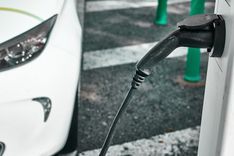India's transition to electric mobility is not merely a shift in transportation; it is a comprehensive transformation of the nation's industrial landscape. At the heart of this evolution are Micro, Small, and Medium Enterprises (MSMEs), whose agility, innovation, and adaptability position them as pivotal players in the Electric Vehicle (EV) revolution. This article explores the multifaceted role of MSMEs in India's EV journey, highlighting their contributions, challenges, and the support mechanisms essential for their success.
MSMEs: the backbone of India's EV ecosystem
MSMEs constitute over 90% of India's industrial units and contribute approximately 30% to the nation's GDP. Their involvement in the EV sector spans various domains, including component manufacturing, charging infrastructure, battery technology, and after-sales services.
Component manufacturing
MSMEs are instrumental in producing critical EV components such as electric motors, controllers, power electronics, and chassis parts. Their expertise in precision engineering and cost-effective production makes them valuable partners for Original Equipment Manufacturers (OEMs). For instance, the upcoming 500-acre EV park in Kanpur aims to house facilities for manufacturing electric motors, chassis, steel parts, and lithium-ion cells, fostering the growth of MSMEs in the region.
Battery technology and energy storage
The shift towards EVs necessitates advancements in battery technology. MSMEs are engaging in the assembly of battery packs, development of Battery Management Systems (BMS), and exploration of alternative chemistries to enhance performance and reduce costs. Companies like Wardwizard Innovations have established lithium-ion battery assembly lines, contributing to the domestic battery ecosystem.
Charging infrastructure
The expansion of EVs hinges on accessible charging infrastructure. MSMEs are pivotal in setting up localized charging solutions, especially in urban and rural areas. Their involvement ranges from manufacturing charging equipment to operating charging stations, thereby enhancing the EV adoption rate.
Government initiatives supporting MSMEs in the EV sector
Recognizing the critical role of MSMEs, the Indian government has introduced several policies and schemes to bolster their participation in the EV ecosystem.
Production Linked Incentive (PLI) scheme
The PLI scheme offers financial incentives to companies manufacturing advanced automotive technology products, including EV components. This initiative aims to enhance the global competitiveness of Indian MSMEs and attract investments in the EV sector.
FAME India scheme
The Faster Adoption and Manufacturing of Hybrid and Electric Vehicles (FAME) scheme provides subsidies for electric vehicles and supports the development of charging infrastructure. MSMEs benefit from increased demand for EVs and opportunities in setting up charging stations.
State-level policies
States like Maharashtra and Uttar Pradesh have formulated EV policies offering incentives such as capital subsidies, tax exemptions, and support for setting up EV manufacturing units. These policies aim to create a conducive environment for MSMEs to thrive in the EV sector.
Challenges faced by MSMEs in the EV transition
Despite the opportunities, MSMEs encounter several challenges in integrating into the EV ecosystem.
Financial constraints
High initial investment requirements for technology upgrades and infrastructure development pose significant hurdles. Access to affordable financing remains a critical issue for many MSMEs.
Technological barriers
The rapid evolution of EV technology necessitates continuous upskilling and adaptation. MSMEs often lack the resources for research and development, impeding their ability to innovate.
Supply chain disruptions
Dependence on imported components and raw materials exposes MSMEs to global supply chain volatilities. Establishing a resilient and localized supply chain is essential for sustainable growth.
The road ahead: strategies for empowering MSMEs
To harness the full potential of MSMEs in the EV revolution, a multi-pronged approach is necessary.
Access to finance
Developing tailored financial products and credit guarantee schemes can alleviate funding challenges. Collaborations with financial institutions to offer low-interest loans and grants will support MSMEs in scaling their operations.
Skill development and training
Implementing comprehensive training programs focused on EV technologies will equip the workforce with the necessary skills. Partnerships with educational institutions and industry bodies can facilitate knowledge transfer and innovation.
Infrastructure development
Investing in dedicated EV clusters and industrial parks will provide MSMEs with access to shared resources, testing facilities, and logistical support. The Kanpur EV Park serves as a model for such integrated development.
Policy support and simplification
Streamlining regulatory processes and providing clear guidelines will reduce entry barriers for MSMEs. Continuous engagement between policymakers and industry stakeholders is vital to address emerging challenges.
Conclusion
MSMEs are indispensable to India's ambition of becoming a global leader in electric mobility. Their contributions span the entire EV value chain, from manufacturing to services. By addressing the challenges, they face and leveraging supportive policies, India can ensure that MSMEs not only participate in but also drive the EV revolution. A collaborative effort involving government, industry, and academia is essential to create a sustainable and inclusive electric mobility ecosystem.




 +91 7208055523
+91 7208055523
 Help & support
Help & support
